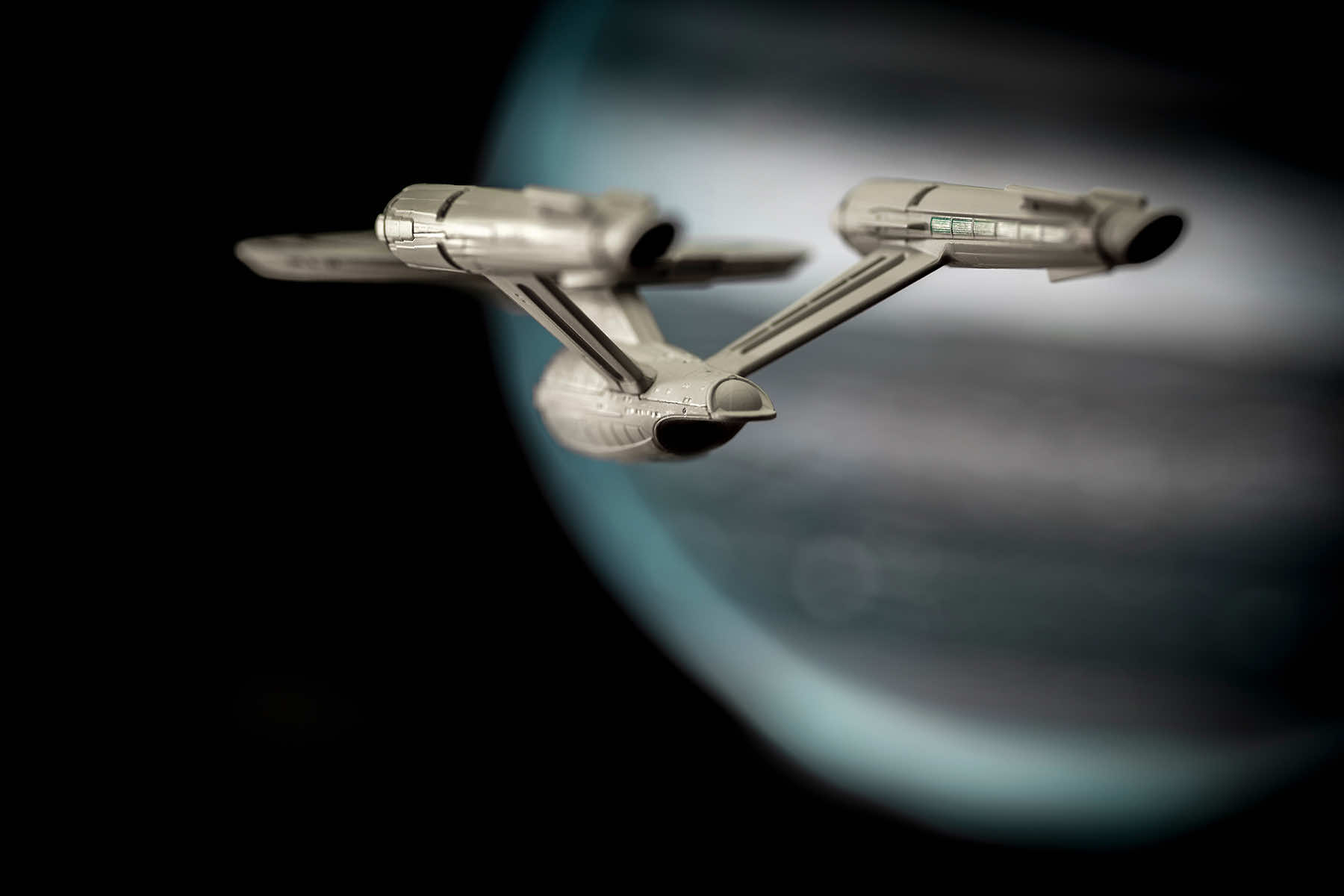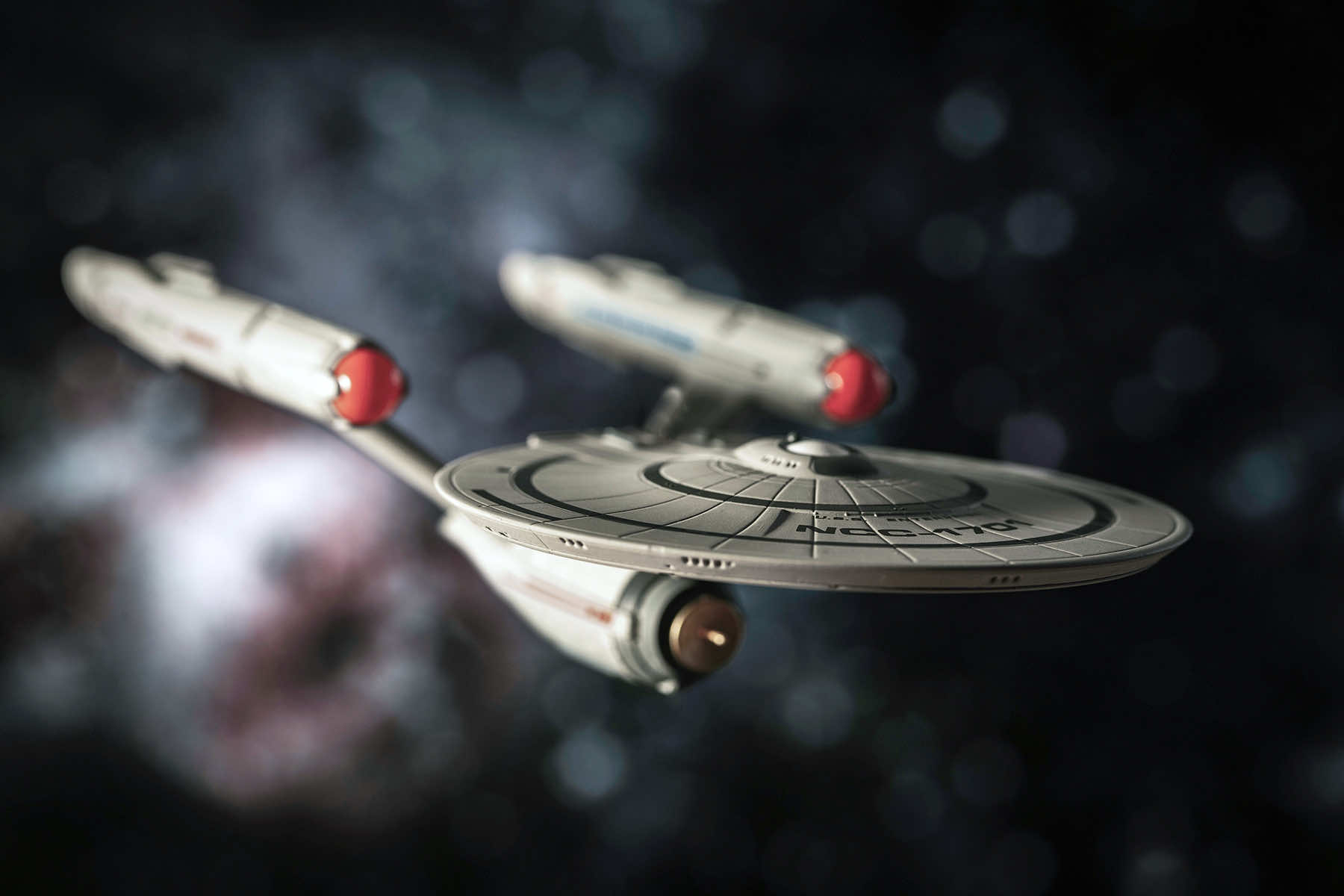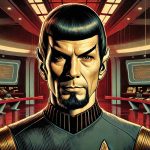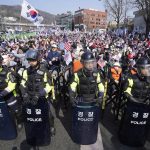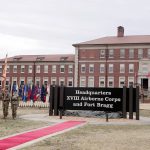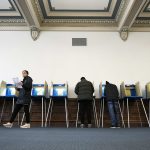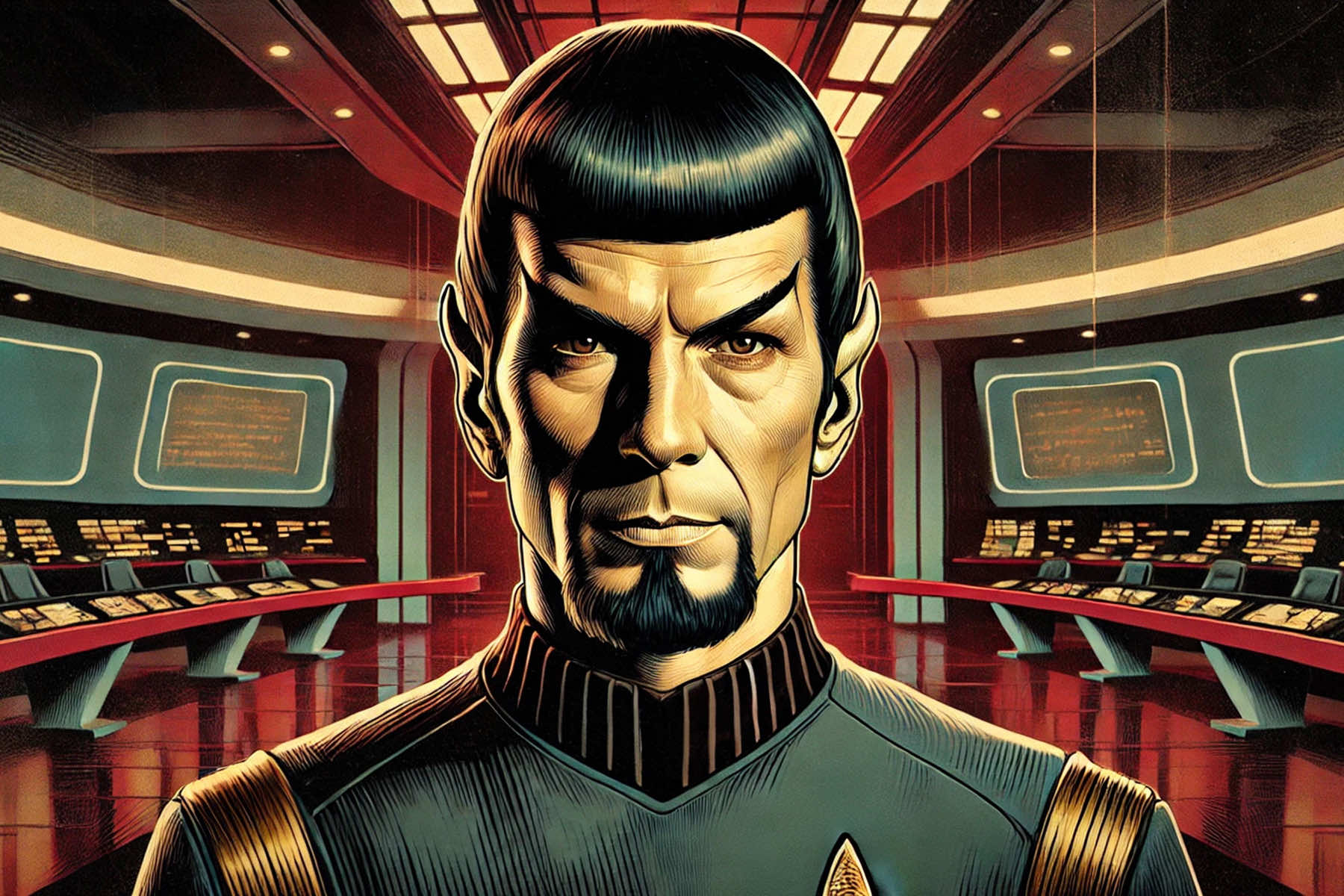
When “Star Trek: The Original Series” first aired in the late 1960s, it offered American viewers not just a glimpse of futuristic star travel but also a reflection of contemporary social tensions.
Few episodes crystallized those parallels more powerfully than the episode “Mirror, Mirror,” which was originally broadcast on October 6, 1967. In it, a transporter malfunction sends Captain Kirk, Dr. McCoy, Scotty, and Uhura into a brutal parallel universe, where the crew of the Imperial Starship Enterprise operates by tyranny and fear instead of diplomacy and trust.
Today, in the America poisoned by the brutal corruption of President Donald Trump’s second administration, many argue that the United States has become that Mirror Universe. Instead of returning to the bold optimism often associated with the U.S. Constitution, critics say the country has settled into a more hostile and suspicious environment.
This editorial examines the plot of “Mirror, Mirror,” explores the social conditions of 1967 America, and draws a stark comparison to the conditions that some believe plague our contemporary society under Trump’s incompetent leadership. The lines between fiction and reality have blurred.
THE PLOT OF “MIRROR, MIRROR”
The second-season episode begins innocently enough. Captain James T. Kirk (William Shatner) and his landing party attempt to negotiate the acquisition of dilithium crystals from the pacifistic Halkans. A sudden ion storm interrupts the transporter beam as they return to the Enterprise, catapulting Kirk, Uhura (Nichelle Nichols), Dr. McCoy (DeForest Kelley), and Scotty (James Doohan) into an alternate reality.
Once aboard, they realize this version of the Enterprise is governed by cruelty, intimidation, and assassination. Officers wear menacing sashes, and discipline is enforced via an “agonizer” device. Meanwhile, the “parallel” versions of Spock (Leonard Nimoy), Sulu (George Takei), and Chekov (Walter Koenig) enforce the Empire’s ironclad rules.
“Mirror, Mirror” hinges on the moral and ethical disparities between the Federation we know and a fierce Imperium. Kirk and his crew scramble to hide their true identities and find a way back to their rightful universe, while Mirror Spock, keenly perceptive, grows suspicious of their uncharacteristic lack of aggression.
The episode’s tension heightens as Kirk and his team discover that to survive in their barbaric environment, they must feign the cruelty normally displayed by the Mirror Universe’s inhabitants. Eventually, the real Kirk appeals to Mirror Spock, using logic to persuade him that the Empire’s ways are counterproductive and unsustainable.
It is a moment that underscores the core belief of the ideology in “Star Trek,” that peaceful conflict resolution and enlightenment ideals. The landing party manages to return to their home dimension, though not without leaving a seed of doubt in Spock’s mind about the merits of the Empire. In the final scene, a revitalized Kirk rejoices in returning to a ship that is guided by reason, cooperation, and a bright vision for humanity’s future.
AMERICA IN 1967
The year 1967 was a tumultuous time in the United States. The Civil Rights Movement, led by figures such as Martin Luther King Jr. and other community leaders, was in full force. While legislative milestones such as the Civil Rights Act (1964) and the Voting Rights Act (1965) had been signed into law, racial tensions continued to flare. Demonstrations and activism were widespread, as protestors challenged centuries-old discrimination embedded in legal and social structures.
Meanwhile, the Vietnam War escalated. Daily images of conflict saturated American television screens, sparking debates among families, journalists, and politicians. In 1967, more than 400,000 U.S. troops were stationed in Vietnam, and opposition to the war grew. Peace rallies and anti-war demonstrations proliferated across the nation, from college campuses to city streets.
The Cold War further increased societal anxiety. The specter of nuclear standoffs with the Soviet Union weighed on the country’s collective psyche. Children participated in “duck and cover” drills, and families stocked fallout shelters.
Fear of the “other” loomed large in foreign policy discussions, mirroring the precarious dynamic that “Star Trek” captured in many episodes. “Mirror, Mirror” provided a commentary on these tensions, suggesting that humanity’s future depended on collaboration, reason, and the recognition of shared values, all the qualities missing from the savage Mirror Universe.
THE PARALLEL TO TRUMP’S AMERICA TODAY
Fast-forward to our present era. Donald Trump has once again assumed the presidency, and the political climate resonates with the darker undertones of “Mirror, Mirror.” Supporters applaud the administration for its persecution of right-wing grievances, all built on a feudalistic system that demands loyalty.
Detractors, however, describe this America as a place where bullying supplants debate, executive power overshadows checks and balances, and fear of the “other” defines national rhetoric. Political opponents are demonized. Minorities and immigrants face harsh policies that critics see as punitive rather than protective.
International alliances that once stood as pillars of mutual defense and cultural exchange for decades teeter on the brink. In much the same way the Mirror Universe thrived on conquest and coercion, modern America under Trump leans heavily toward suspicion and unilateral action.
If the original Federation’s creed champions exploration, diplomacy, and respect for all life forms, the Mirror Empire shows the shadow side. When fear guides policy, suspicion corrodes institutions, and might equates to right. Critics of Trump’s administration have offered documentation that we are seeing a real-life manifestation of that shadow.
The rhetorical tone in public discourse is undeniably coarse, with fights breaking out verbally, on social media platforms, and physically at political rallies. No matter where one stands on issues, the sense of living in a divided nation persists.
A Gallup poll recently indicated that Americans are more polarized than at nearly any point in modern history. Red vs. Blue, rural vs. urban, coast vs. heartland — all the divides speak to a body politic that is, in effect, at war with itself.
The concept of a “mirror” America, therefore, is not simply science fiction. It has become a talking point in political conversations, op-eds, and documentaries exploring where America stands and how so many Americans willingly assisted in the decline.
SPOCK’S WISDOM: “A SANE MAN IN AN INSANE WORLD”
In “Mirror, Mirror,” the most iconic figure who bridges both universes is Spock. Logic grounds him, no matter the dimension. The duality is evident when Kirk tries to reason with Mirror Spock, who – despite the cruelty around him – is still a Vulcan guided by a commitment to rational thought. The storyline hints that even in a debased environment, there can be room for empathy and progress.
As fans often quote, Spock once remarked in the series, “In an insane world, a sane man must appear insane.”
Though not an official line from “Mirror, Mirror” itself, it encapsulates the moral challenge. If the society is consumed by cruelty, fear, or irrationality, it is the voice of reason that seems out of place.
That message resonates today. Those who advocate empathy or diplomacy often find themselves marginalized as “weak” or “unpatriotic,” in part because we appear to reward aggression and dominance.
Looking at the broader “Star Trek” ethos, every iteration of the series attempts to underscore the importance of reason guiding actions, not ideology or emotion. Spock’s adherence to logic is not a dismissal of passion or empathy. Rather, it is a structured approach to conflict resolution that, ironically, can open the door to more humane policies.
In our current political landscape, a similar philosophy might be a beacon for those seeking constructive debate over combative rhetoric.
A NEW KIND OF MIRROR
America in 1967 was deeply polarized over Civil Rights, foreign wars, and generational shifts. Yet, amid that turmoil, “Star Trek” extended an invitation to dream of a world united under principles of cooperation, exploration, and equality. The series proposed a grand idea, that humanity could rise above its baser instincts. After all these years, the plot of “Mirror, Mirror” still offers a cautionary tale. Our worst impulses could define us, if we let them.
Social media, our modern-day mirror, reflects the anger, fear, and suspicion of this generation. With every re-post, Americans amplify an “us vs. them” mentality. The narrative becomes that to be strong is to dominate, and to be secure is to isolate.
In “Mirror, Mirror,” the malevolent Sulu and Chekov conspire against their superiors in a web of betrayal. The Emperor rules with an iron fist, and promotions come through violence. Critics of the contemporary political climate engineered by Trump and his cult-like MAGA supporters see a kinship in the brazen leadership style the TV con man and convicted felon exhibits, with firings, abrupt policy shifts, and brash declarations serving as the day-to-day norm.
NO ESCAPE THIS TIME
In the closing moments of “Mirror, Mirror,” Kirk and his companions manage to reverse the transporter malfunction and return to their rightful Enterprise. That final relief is felt not just by the characters but by the audience, reassured that good will ultimately triumph. The episode ends with Kirk encouraging the Mirror Universe version of Spock to consider a more logical approach to governance, planting a seed of hope that perhaps reason can prevail even in a repressive regime.
But what about America in 2025? As a collective society, the public had a choice when it came time to vote — like the Enterprise crew had in that ion storm — to commit fully to forging a path of rational discourse and inclusive values. Instead, a majority of Americans chose to step through a metaphorical gateway that transported all of us into an America shaped by fear and division.
The parallels to the Mirror Universe are uncomfortable to admit. Instead of building alliances, America pivot from them. Instead of elevating discourse, Americans devolve into insults and threats. Instead of celebrating diversity, simple Milwaukee folks view differences as existential dangers.
If “Mirror, Mirror” stands as a timeless cautionary tale, its lesson should be that our better angels can always win out. Yet the question remains whether we truly want to commit to that path. The 1960s offered a moment for progress in Civil Rights and a turning point in the Vietnam War debate, suggesting that ethical, public-minded leadership could eventually alter the course of national policy.
The early days of Trump’s second presidency have already proven that the nation is content to remain locked in a combative stance, reflecting the Mirror Universe’s aggressive ethos. Americans willingly made that choice, but have yet to comprehend the consequences that will result in the weeks, months, and years to follow.
THE AMERICA THAT AMERICANS CHOSE
Looking back on a half-century since “Mirror, Mirror” first aired, one question is sobering. Is America’s unwavering dedication to personal freedom and democratic principles strong enough to transcend the current and self-inflicted conflicts? Or have Americans finally arrived at a point where we have turned into the dark reflection we once feared?
In the classic TV episode, the Enterprise crew were spared such a fatal result by a stroke of luck — and perhaps some Vulcan curiosity — allowing them to transport back to their own dimension, free from the brutality of the Mirror Universe.
Our world, however, has no such scientific loophole. We have chosen this path, and as it stands, there is no escape to a parallel dimension. There is no refuge where Americans can undo our decision on November 5, 2024. We remain in the environment we have created.
In that sense, America’s “Mirror, Mirror” moment is a challenge more than a condemnation. It forces us to confront the possibility that the reflection we see might be the reality we have collectively chosen.
If “Star Trek” taught us anything, it is that hope, combined with logic and moral conviction, can shift any tide. But unlike Captain Kirk, who changed universes with the flick of a transporter switch, residents of Milwaukee, Wisconsin, and all of America must do the work ourselves — here, in this world, with the choices we make next.
© Photo
Willrow Hood (via Shutterstock) and Dall-E

